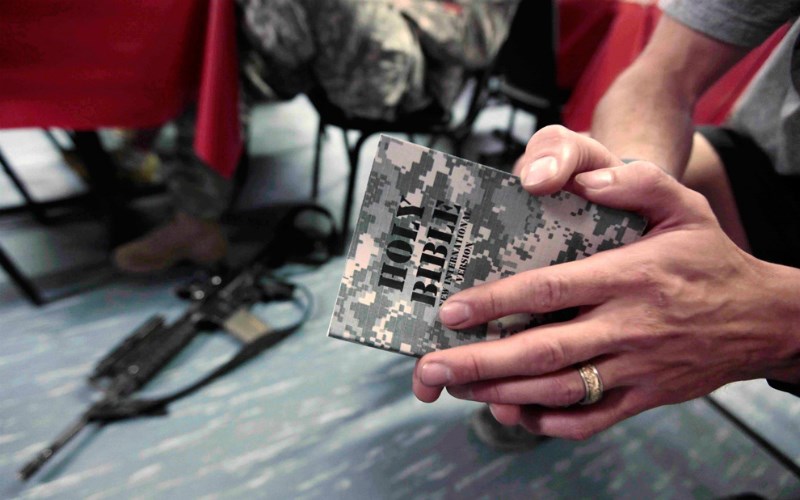On the 80th anniversary of D-Day, some still understand that military action was a necessary step for freedom – though many in the world's free countries do not fully appreciate the history of their freedom, says Marc LiVecche, a distinguished ethics and war scholar and research fellow at the U.S. Naval War College. He argues that knowing and appreciating the history requires acknowledgement of how spiritual awareness – the belief in and submission to a divine Creator – had a direct connection with military strength and victory.
Leaders from both America and England understood this, LiVecche said on Washington Watch on Thursday, the anniversary of the Allied invasion of France that set in motion the defeat of Germany in World War II.
British Prime Minister Winston Churchill understood this in his speech to the House of Commons on June 4, 1940, just after the successful evacuation of 338,000 British and French troops from Dunkirk, France, when he said: "In God's time when the new world, with all its power and might, would step forth to the rescue and the liberation of the old."
It was a not-so-veiled call to America, which was not yet engaged in World War II.
Eventually, American leaders would also praise God for war successes, but "Churchill's words came at a far earlier point in the conflict when not anything was certain," LiVecche told show host Tony Perkins.

Churchill's words and those of Gen. George Marshall, the Chief of Staff of the U.S. Army, who instructed Gen. Dwight Eisenhower to "cross the channel, enter the heartland of Germany and free the continent of Europe' … are the two things that encapsulate the responsibilities of American power," LiVecche said.
And the power comes from God, he continued.
"It was American power and willingness to stand with our allies that helped bring about things like D-Day … liberation of the West from totalitarianism," LiVecche said. "Power is essential. God has power. Power can be used for good, and it can be used for evil, but without it nothing happens."
Roosevelt broadcast powerful prayer on D-Day
When America made the decision to enter the war, President Franklin Roosevelt also called upon God. His prayer was broadcast in his national radio address on June 6, as 160,000 Allied troops were landing:
Roosevelt: "Almighty God, our sons, pride of our nation, this day have set upon a mighty endeavor, a struggle to preserve our republic, our religion and our civilization and to set free a suffering humanity. Lead them straight and true. Give strength to their arms, stoutness to their hearts, steadfastness in their faith.
"They will need thy blessings. Their road will be long and hard. The enemy is strong. He may hurl back our forces. Success may not come with rushing speed, but we shall return again and again, and we know that by thy grace and by the righteousness of our cause, our sons will triumph. Some will never return. Embrace these Father, and receive them thy heroic servants into thy kingdom."
Military might and the blessing of the Almighty cannot be separated, LiVecche said. Strength is rooted in moral bearings that come from a sense of objective truth, he added.
"It's a sense that there are things in the world that are true, are good, are beautiful, and those things aren't up to us. We don't get to decide them as individuals, we don't get to decide them as a collective. The Christian understanding would be that these things emerge out of the character of God."
Dominion does not equal domination
There comes a point when men decide that war is just, LiVecche said. This is something that goes back to the creation of the world in Genesis.
"We were made in the image of God to exercise dominion. That's part of being made in the image of God. The exercise of dominion is not domination but stewardship. We move forward from there into the institution of government, which is designed to preserve basic order, peace and justice for the political community," LiVecche said.
It's a Hebraic understanding of what it means to be responsible in the world, and it's an understanding many are losing, he said. Some, thankfully, are not.
"In a lot of quarters, we have lost it. [But] there are quarters of our country that have not lost it, that are very confident of where this comes from. There are a lot of us that still understand that we breathe … biblical air," LiVecche stated.







